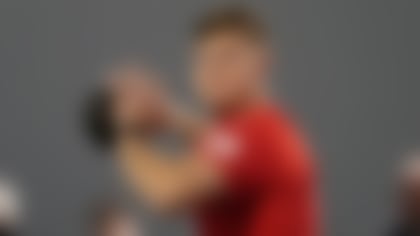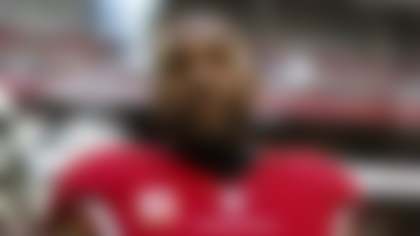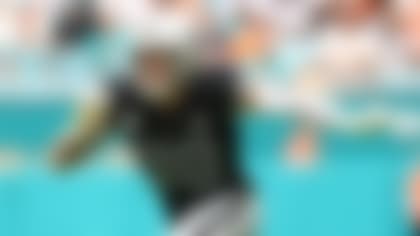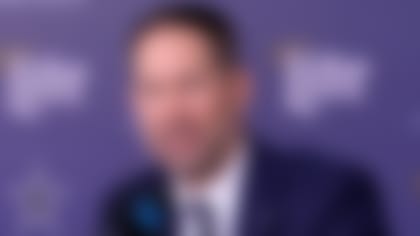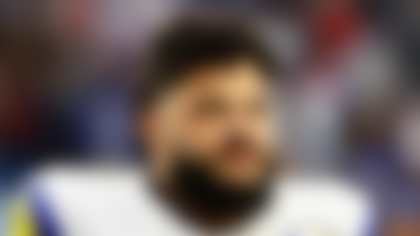The NFL and NFL Players Association announced in a joint statement on Saturday that while "the step-by-step process outlined in the concussion protocol was followed, the outcome in this case was not what was intended" during Miami quarterback Tua Tagovailoa's concussion evaluation during the Dolphins' game against the Bills on Sept. 25.
In response to the investigation, the league's concussion protocol has been modified. The new concussion protocol will be in effect starting this Sunday.
The NFL and the NFLPA announced that the specific change to the protocol is that the diagnosis of "ataxia" has been added to the mandatory "no-go" symptoms that determine whether or not a player re-enters a game.
"As such, as has been done in previous cases, based on the advice of the parties' respective medical experts, the Protocol will be modified to enhance the safety of the players," the statement read. "Specifically, the term 'ataxia' has been added to the mandatory 'no-go' symptoms. 'Ataxia' is defined as abnormality of balance/stability, motor coordination or dysfunctional speech caused by a neurological issue. In other words, if a player is diagnosed with 'ataxia' by any club or neutral physician involved in the application of the Concussion Protocol, he will be prohibited from returning to the game, and will receive the follow-up care required by the Protocol."
Tagovailoa briefly exited the Sept. 25 game against Buffalo in the first half with what the team initially announced as a head injury he sustained following a hit from linebacker Matt Milano, who was flagged for roughing the passer on the play. Once he got up on his feet, Tagovailoa shook his head and stumbled as he began to trot forward before getting taken out of the game. Tagovailoa later returned to play following halftime.
After the Dolphins' 21-19 win, head coach Mike McDaniel told reporters that Tagovailoa suffered a lower-back injury in the first half, which was exacerbated by the hit from Milano, and was the cause of Tagovailoa's stumble.
The NFLPA initiated an investigation into the handling of Tagovailoa's concussion evaluation following the Dolphins' Week 3 win.
"The Club medical team and the UNC properly viewed the video of the play in question as required by the protocol and engaged in a locker room examination of Mr. Tagovailoa before the player was cleared to return to play," the NFL and NFLPA said on Saturday. "The Team physician cleared Mr. Tagovailoa, following consultation with the UNC. The steps set forth in the Concussion Checklist were, therefore, conducted."
The investigation found that the medical staff involved determined that the Gross Motor Instability (GMI) suffered by Tagovailoa on Sept. 25 was not neurologically caused, and concluded that his back injury was the cause of his observed instability. The team physician and unaffiliated neurotrauma consultant (UNC) involved did not conduct an analysis of Tagovailoa's back during the concussion examination, however, and instead relied on the earlier exam conducted by other members of the medical staff when Tagovailoa first reported issues to medical staff regarding his back and ankle, the NFL and NFLPA said in its statement on Saturday.
"Mr. Tagovailoa did not report or exhibit any signs or symptoms of concussion during his locker room exam, during the remainder of the game, or throughout the following week," the investigation found.
Tagovailoa later endured a scary collision during a Sept. 29 game against Cincinnati, in which he was slung to the ground by Bengals defensive tackle Josh Tupou. Tagovailoa hit his head on the ground and his arms and hands locked in a fencing response. Tagovailoa remained on the turf for several minutes as trainers attended to him before being taken off the field on a stretcher and then by ambulance to the University of Cincinnati Medical Center to be treated for head and neck injuries.
McDaniel ruled out Tagovailoa on Oct. 3 for the team's Week 5 game against the New York Jets due to the concussion that Tagovailoa sustained against the Bengals.
On Oct. 1, the NFLPA terminated the unaffiliated neurotrauma consultant (UNC) involved in Tagovailoa's concussion check during the Week 3 game against Buffalo, citing a failure to understand his role as the UNC and hostility during the investigation process among the factors contributing to his dismissal.
"It's not something we would have done and didn't," NFL spokesperson Jeff Miller told reporters on Saturday. "We never supported terminating him."
NFL chief medical officer Dr. Allen Sills told reporters Saturday that if the new concussion protocols were in effect, Tagovailoa wouldn't have been able to return to the game against the Bills.
Sills also defended those involved in Tagovailoa's care, stating they operated with "absolute integrity."
"These people are the people that you would want caring for you," Sills said.
The NFL and NFLPA on Oct. 1 agreed to parameters of updated concussion protocols that will rule out players who exhibit gross motor instability regardless of any possible contributing factors, such as with Tagovailoa in the Dolphins' Week 3 game.



